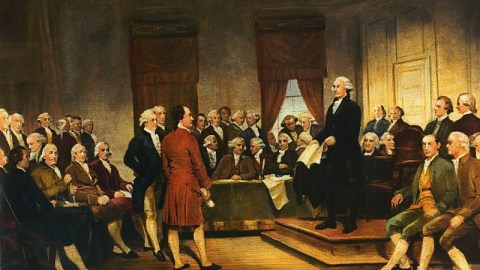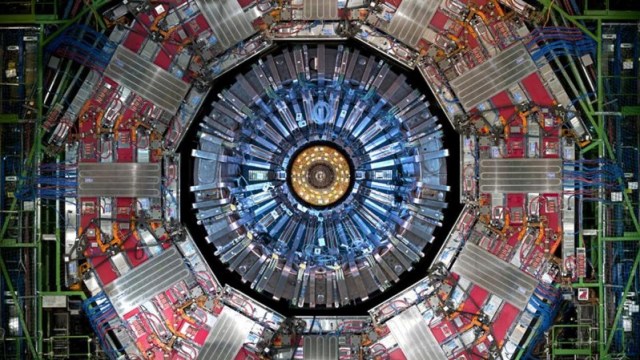Why the Electoral College exists (and isn’t going anywhere soon)

As many Americans are reeling in the aftermath of the rancorous U.S. Presidential election, calls and petitions are out to either get rid of the institution of Electoral College (EC) or turn some of the electors to vote for Hillary Clinton anyway, to reflect her victory in the popular vote. While such appeals clearly have a partisan origin, with dismayed Democrats looking for any way possible to get the results changed, it’s worthwhile to consider why the Electoral College was created. Whatever one might think of this American institution, the way the Clinton campaign neglected the purpose of Electoral College politics has contributed to its stunning defeat.
The Democrats have been particularly hurt by the existence of the Electoral College in recent history, losing the election of 2000 to George W. Bush and now the 2016 election to Trump, even while winning the popular votes. A big reason for this – Democrats get most of their support in large population centers and not rural areas. This would not have mattered if a simple majority across the whole country was enough, but as it is, Democrats need to pay attention to each state’s interests, if they want to win.
The Electoral College system gives a fixed number of votes to each state, linked to the size of its population. Each state gets the number of “electors” equal to its delegation to the Senate (2) and House of Representatives (ranging from 1 to 52). The total number of EC votes up for grabs is 538, with 270 being the number to reach to win the election.
The idea is that doing it this way people living in smaller, often more rural states, would get their voices heard too. If the U.S. had elections based on popular votes alone, the candidates would focus most of their attention on areas with large populations. Would it be fair that policies benefitting California or New York, where a big chunk of Americans lives, should be the main ones enacted, at the expense of policies that would focus, let’s say, on the Rust Belt states, who were key in deciding the current election?
On the flip side, the Electoral College creates a situation where candidates focus their attention mostly in a small number of “battleground” states instead of the whole country. Case in point – Clinton’s campaign.
Hillary Clinton didn’t even visit Wisconsin since the primaries (when she lost there to Bernie Sanders), becoming the first major party candidate since 1972 to not visit the state during the general election period. The Democrats relied on polling that told them they had the state locked up. In contrast, Donald Trump was in Wisconsin on November 1st, shaking hands and not believing polls. As the state was decided by just 27,000 in his favor, even after millions voted, it’s hard not see Clinton’s failure to participate in old-fashioned politics in the state as responsible for not turning out her voters there.
“We needed to see Hillary because she did not win in the primary,” said Anita Johnson of Citizen Action of Wisconsin.
Some go as far as to say that the Electoral College will always continue to help Republicans, with acclaimed author Joyce Carol Oates stating on Twitter that “electoral college will forever tip balance to rural/conservative/”white”/older voters –a concession to slave-holders originally.”
electoral college will forever tip balance to rural/conservative/”white”/older voters –a concession to slave-holders originally.
— Joyce Carol Oates (@JoyceCarolOates) November 9, 2016
What she's referring to has been explained by Professor George C. Edwards III, who teaches American government at Oxford University, as the impact slave-owning states had on creating the American voting system. During the 1787 Constitution Convention, the Electoral College was seen as compromise because it allowed mostly Southern states which had large populations but fewer eligible voters (because many were slaves) to be represented. A slave was counted as 3/5 of a person for the purpose of determining how many electors the state would get.
Another idea behind having “electors" was that the EC was created at a time when the founders did not trust that most of the population would be able to make informed decisions. The “college" was a way to check the decision-making of average citizens, in case they did not make an intelligent choice. Whether the glut of information and mis-information available nowadays is creating “informed" citizens is certainly up for debate.
Additionally, a New York Times piece argued that those who defend the electoral college system see it as a way to avoid costly and logistically nightmarish recounts in close races.
Still, as many have contended, including the President-elect Donald Trump himself in 2012, the Electoral College is not an entirely democratic system. But how to change it? It would require a constitutional amendment (requiring passage by 2/3 of Congress and 38 states), unlikely to happen under a Republican-controlled government.
Another idea - award electors proportionally, not in a 'winner takes all" way. Maine and Nebraska have opted for this approach. But even with such a system in place, Clinton would still have lost as Trump won his states by higher margins.
Another way to go - get enough states who'd represent 270 votes that are needed to elect a President to sign onto the National Popular Vote Interstate Compact, which would make sure all the votes from a state are awarded to the popular vote winner. So far 10 states joined it.
"We are the greatest democracy on the planet, and it seems to me that in the greatest democracy, the person who gets the most votes should win the election," said Assemblyman Jeffrey Dinowitz, who helped bring New York into the compact. “We're one country, North, South, East and West. One country. The votes of every single person in the country should be equal. And right now, the votes are not equal. Some states your vote is more important than in other states."
Chances are, as in previous such situations, when the elections fade from memory, so will most calls for reform. Thus, the battle to somehow amend or completely abolish the Electoral College is not likely to pan out in changes any time soon. In the meantime, Democrats could learn that showing up and rallying their voters in every state of the country, as well as offering programs that benefit voters in rural areas as well as large cities, could be one classic way to make sure the Electoral College works for them, a lesson they seemed to have forgotten in 2016.
Cover image: Washington at Constitutional Convention of 1787, signing of U.S. Constitution. 1855. Painting by Junius Brutus Stearns.





